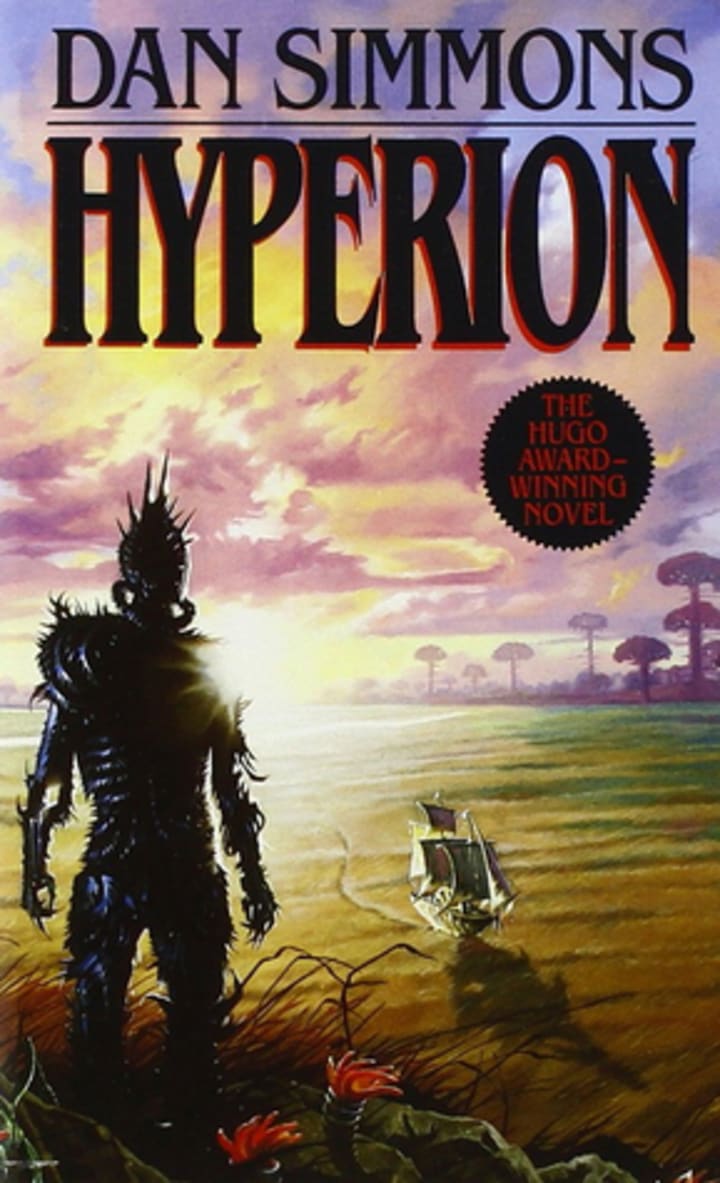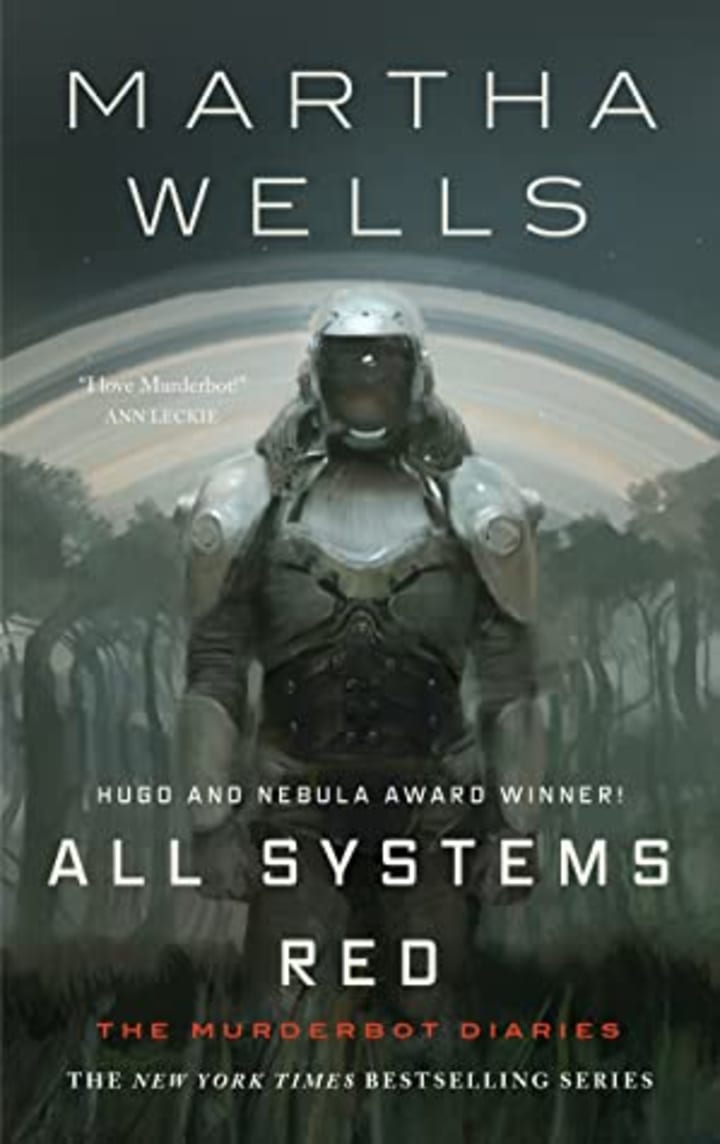Loved DUNE? Here Are 4 Great Sci-Fi Novels You Probably Haven't Read
Now that the long-awaited epic sci-fi movie is out, why not take a moment to look around and see what else the genre has to offer?

Dune (dir. Denis Villeneuve) brought in over 40 million dollars last weekend when it opened in the United States, and if you were one of the many people who adored it, I have great news: there's a lot more where that come from.
Of course there's the original Dune novel (and the other five books that make up Frank Herbert's original Dune series), and there's the extended universe Dune books written by other authors. And, if you liked the Dune movie, maybe you'll like the Foundation show on Apple TV+ or The Expanse on Amazon, both of which are also based on novels.
But the chances are that you've already heard all about those shows.
What you might not have heard about is the other great sci-fi novels that haven't become movies or TV shows (at least, not yet). Are these exactly like Dune? Obviously not, but if you loved Dune there's a really good chance that you'll love these books too.
A FIRE UPON THE DEEP by Vernor Vinge

If you loved the imaginative and dense world-building in Dune, you might fall in love with A Fire Upon the Deep. Like Dune, Fire shoves you into the deep end in a world that feels like it has been around for a long time. There are multiple species of aliens, godlike AIs, and an entire cosmology that might take you a few chapters to wrap your head around.
But if you keep with it and you pay close attention, you'll be rewarded with one of the most interesting, mind-blowing novels that sci-fi has to offer.
There are aliens in this world, but they're not Star Trek-style men-in-a-rubber-suit aliens. Vernor Vinge has imagined distinct species of aliens that feel plausible and unique, stretching what you might imagine a sentient entity can be. Considering how the book floors the accelerator basically from the first page onward, it takes some time to piece together exactly what you should be imagining, but the result is worth it. When the pieces click in place, you will feel transported far, far away from Earth. If you liked leaving Earth for Arrakis, you'll like your time in the Zones of Thought.
This is not sci-fi on easy mode, but it should also be emphasized that it's not some philosophical tome either. A Fire Upon the Deep will stretch your mind (at least, it stretched my mind), but it's also a space-faring adventure full of peril and excitement.
Honorable Mention:
If you end up enjoying A Fire Upon the Deep, you should also check out the prequel. A Deepness in the Sky isn't exactly connected to the plot of Fire, but it's also a delight. There's a reason why both of these books won Hugos.
HYPERION by Dan Simmons

Or maybe you loved Dune because it almost feels like a fantasy story, what with the knife-fights and warring noble houses. The novel is considered one of the landmark entries in the genre of soft sci-fi, where scientific plausibility takes the back seat to the book's other considerations. If you're interested in more genre-blending adventures, you should check out Hyperion. This is firmly in the realm of soft sci-fi, but beyond that it's hard to pin Hyperion into anything more specific.
Best described as The Canterbury Tales in space, Hyperion blends the various stories of a group of travellers who all on a pilgrimage to meet the Shrike, an entity that I won't bother trying to describe. Trust me: a good portion of the novel is just exploring what exactly the Shrike is, so I won't try to do that in one Vocal post. Each pilgrim tells their own story, and in the process we learn why they are all on this journey.
And, because each are telling their own stories, Hyperion jumps between genres a lot. If your experience is anything like mine, you will read some sections and love the book, and read other sections and... not love it so much. Hyperion almost exists outside the realm of genre, but it is a book that will sit with you for a while. You won't find many other books like it.
Honorable Mention:
It would be something of a dishonorable omission to ignore the fact that in a lot of ways Hyperion is only half a novel. The other half is in The Fall of Hyperion, and if you are jazzed by Hyperion, you should probably just finish the story.
THE THREE-BODY PROBLEM by Cixin Liu

Early in Dune, Duke Leto (Oscar Isaac) has a tense conversation with his wife, Lady Jessica (Rebecca Ferguson). "I'm not asking his mother," the Duke says. "I'm asking the Bene Gesserit."
Dune is a story full of monsters and space-travel, but it's also full of intrigue. Everyone may have allegiances to more than one faction in this great interstellar game. And if that's what has got you excited, there's another book you should check out:
Of the books on this list, Cixin Liu's The Three-Body Problem bears the least aesthetic similarities to Dune. Dune is set in the far-future where Earth is little more than a myth, and The Three-Body Problem splits its timeline between the near future and the past fifty years of human history. However, as the story unfolds, that same sense of intrigue will appear. There's a conspiracy at the center of the novel that I can't even hint at without spoilers, and the alliances are as shadowy as anything from the world of Arrakis. The fate of the human species hangs in the balance, but why? And how? Much of the book is just dedicated to figuring that out.
Who should you trust? Who is working together, and who is working at cross-purposes? And who will die before they find out all of the answers?
Besides, if you read The Three-Body Problem now, you get to be one of the people who is in-the-know if Netflix's potential adaptation rolls around.
ALL SYSTEMS RED by Martha Wells

Finally, maybe you love sci-fi, but you're looking for something fun, fast, and light. It's entirely possible to love Dune because of the heady ideas about the philosophical underpinnings of heroism and leadership, but it's also possible to love Dune because sandworms are badass and the visuals are neat. Both are perfectly fair readings of the text, and if you're in that second category, you might not be in the mood for the previous three books. However, you will probably enjoy The Murderbot Diaries, a series of short, fast-paced novels centring on a security robot going on various adventures.
Beginning with All Systems Red, these books are quick reads that are easy to follow and fun to read. The worldbuilding doesn't dunk you quite so deep as A Fire Upon the Deep, and this is squarely in the genre of sci-fi action, so no genre-blending like Hyperion. The book starts fast and rockets towards its conclusion, so don't expect the web of intrigue from The Three-Body Problem.
But isn't that okay?
In Conclusion: What is Sci-Fi Anyways?
Sci-fi is a broad, sweeping genre that can take dozens of different forms. Someone will always be slicing it up into narrower and narrower genres because so much can fit under the umbrella of science fiction. And when something like Dune rolls around, people seem to instinctively react by pretending to know the right way to enjoy the story.
Except, of course, there is no right way.
There has to be room in this genre for all sorts of people. You can love Star Trek, and you can love Dune, and you can love Star Wars, and you can love all of them or any combination of them.
Each of the books on this list offer different pleasures to the reader, and each of them ask for different investments from their audience. And as long as you know what you like, hopefully one of these books can be the next book that you adore.
About the Creator
Littlewit Philips
Short stories, movie reviews, and media essays.
Terribly fond of things that go bump in the night.






Comments
There are no comments for this story
Be the first to respond and start the conversation.